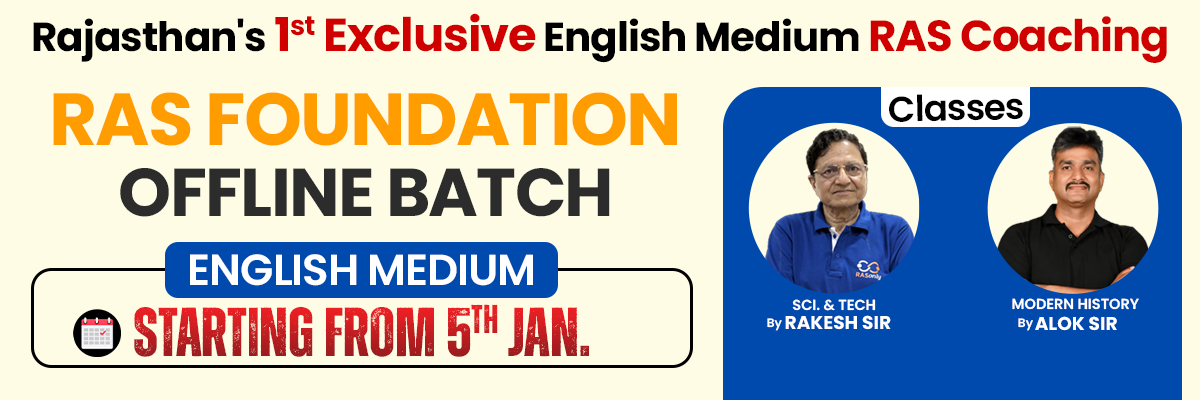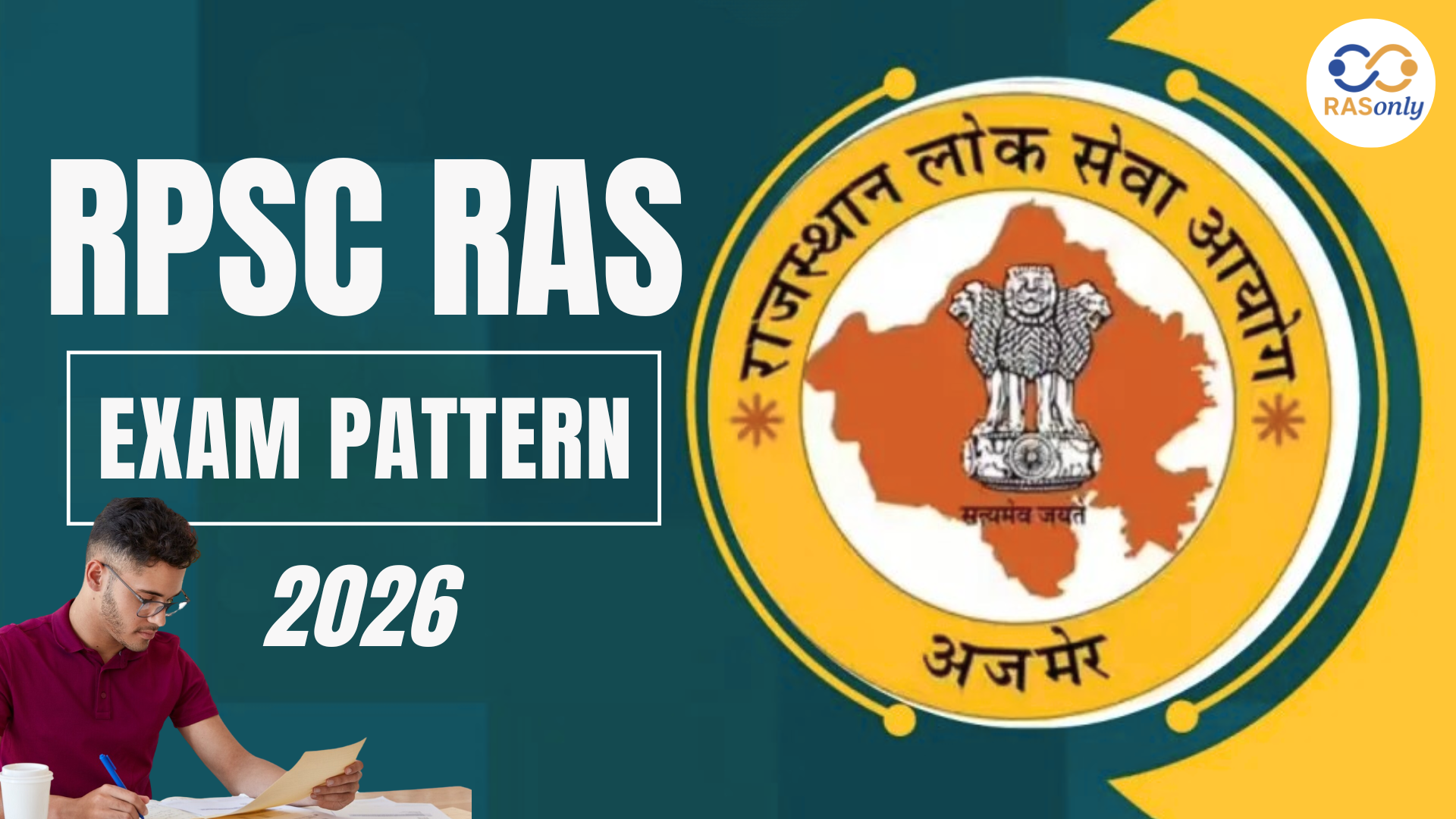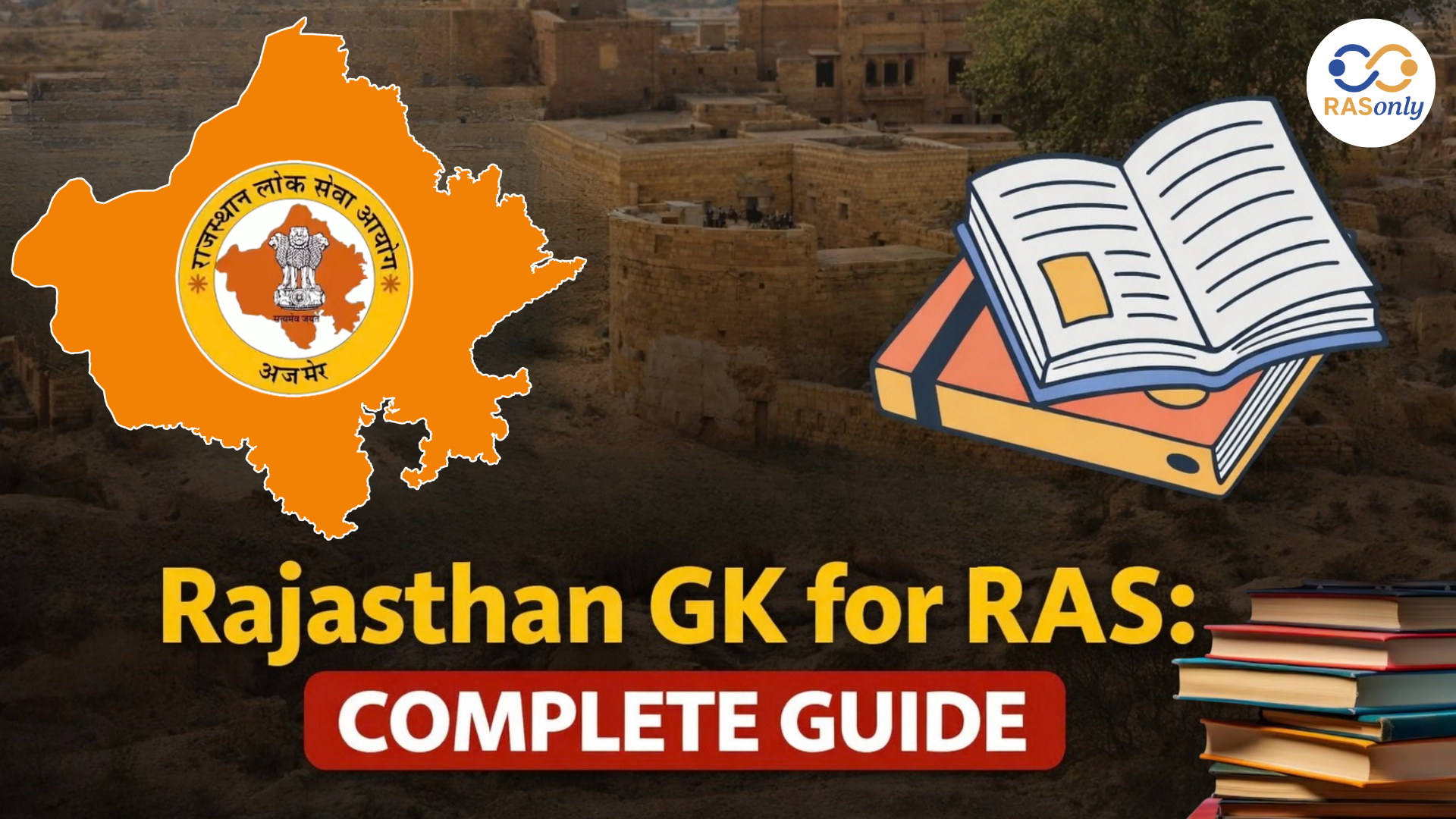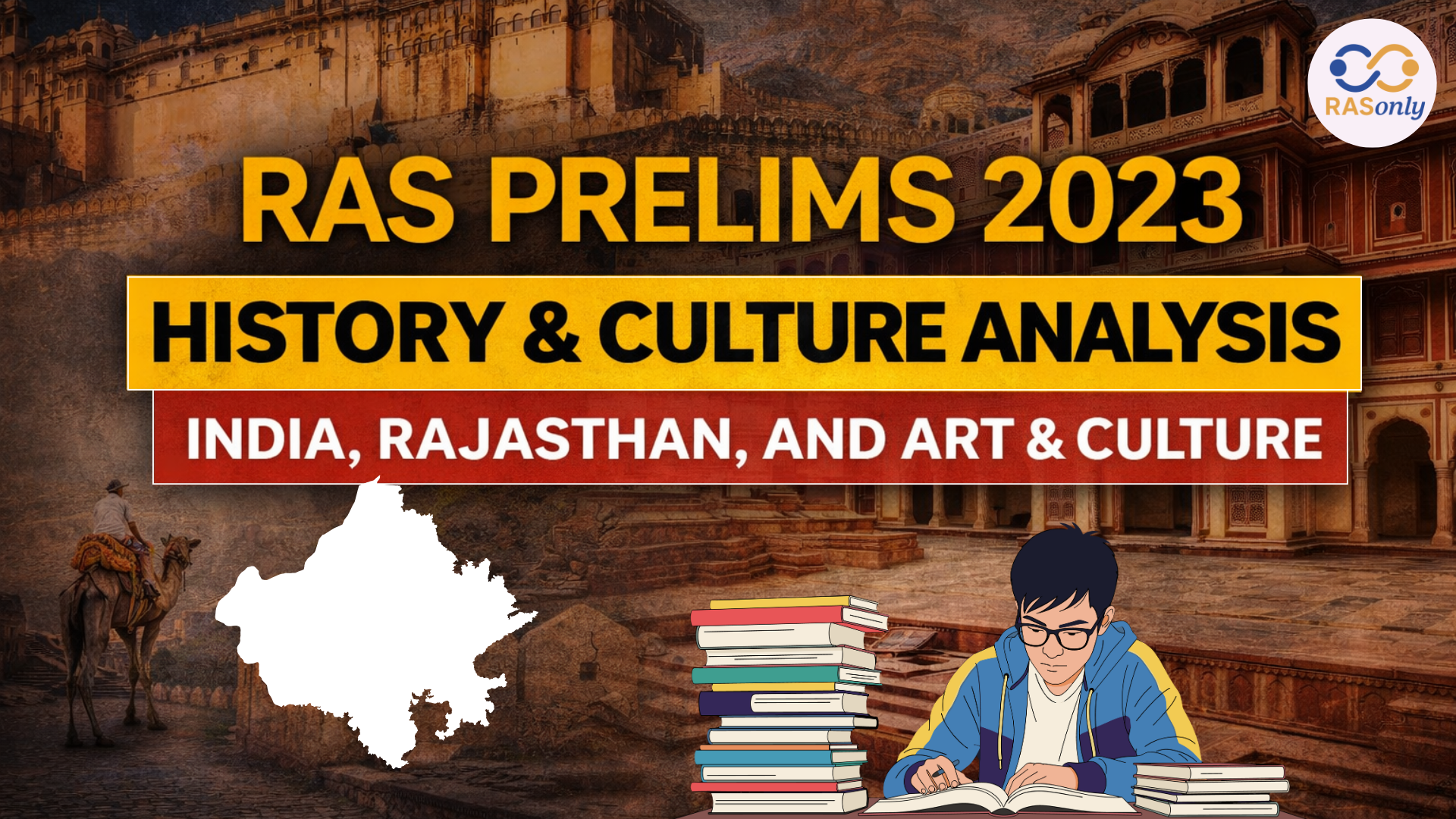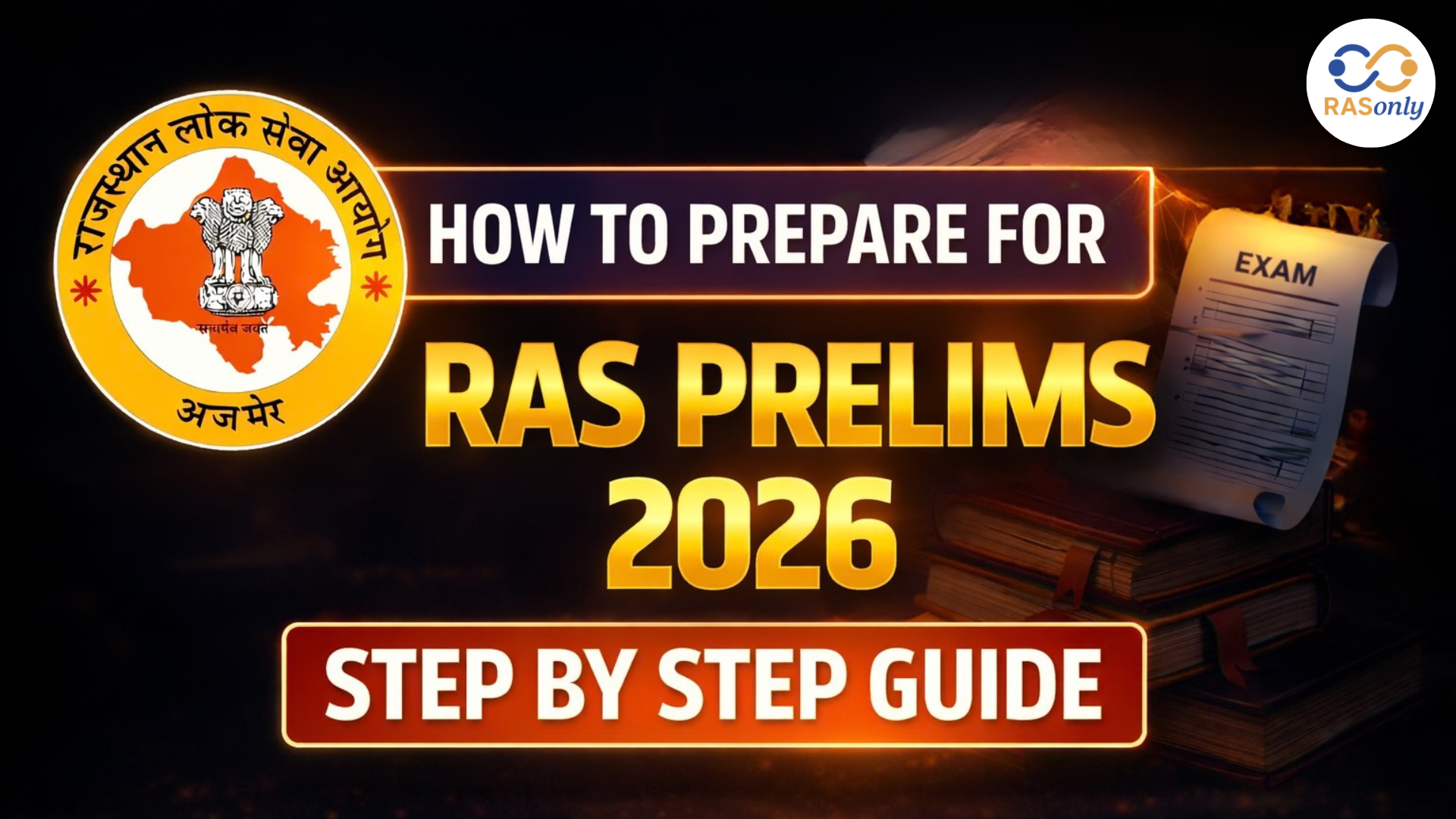RPSC RAS 2026 Subject Wise Exam Pattern for Prelims, Mains & Interview Details
- >
- RAS Preparation Resources
- >
- Rajasthan Agriculture Snapshot: Major Crops & Top Producing Districts
Rajasthan Agriculture Snapshot: Major Crops & Top Producing Districts

Get in Touch with RASonly!

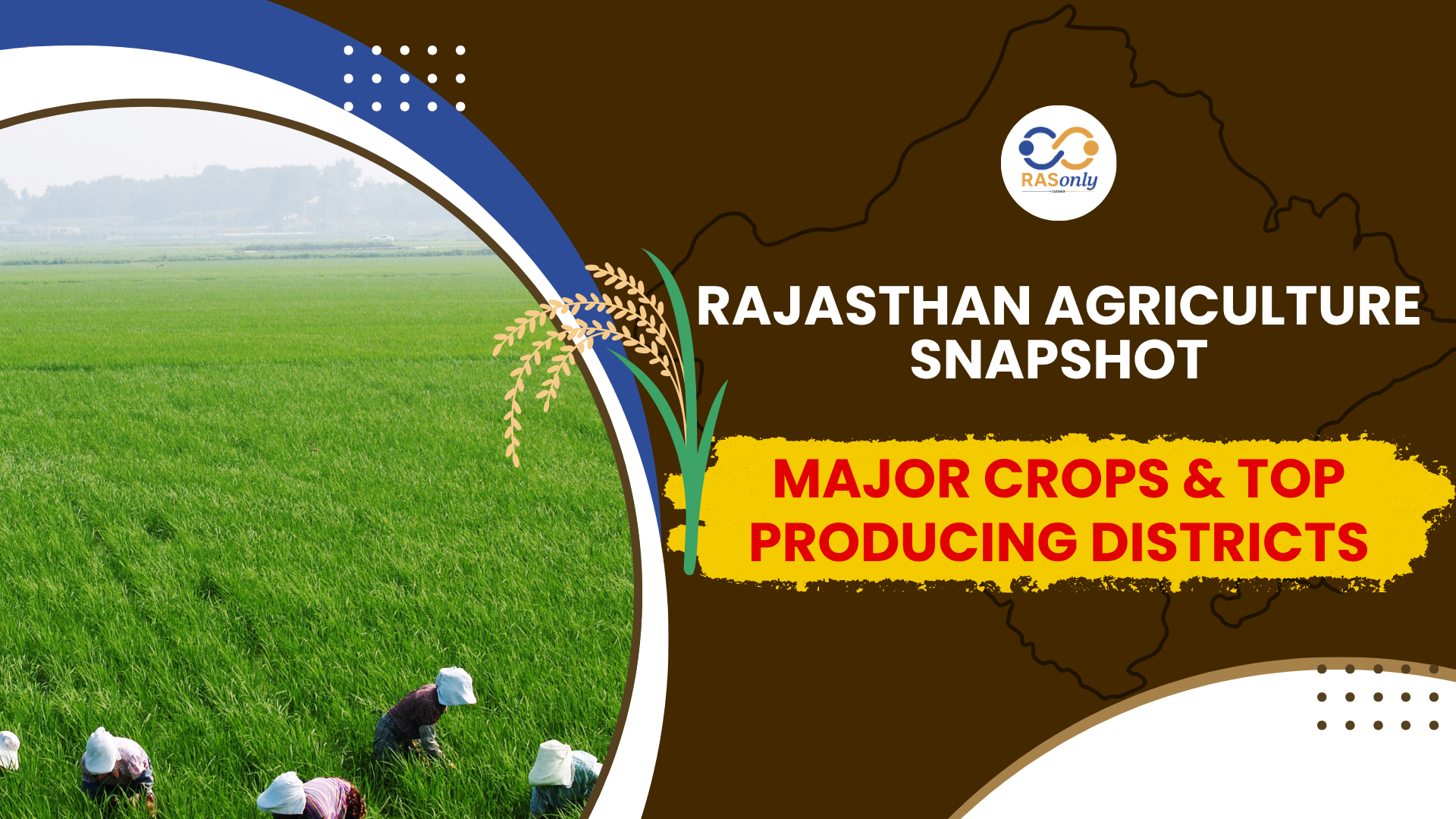
The Rajasthan Agriculture Snapshot mirrors the special capability of the state to harvest a vast range of vegetation irrespective of the overall arid and semi-arid weather conditions. The rural economy in Rajasthan is agrarian-based, with more than 60 per cent of the people employed in the sector. Wheat, bajra, maize, and pulses are key crops, and each of these crops is cultivated in different districts because these crops grow in different agro-climatic zones. To an RAS aspirant, learning about cropping pattern, irrigation system, and district-wise dominance matters in not only covering the static and applied parts of the geography and Economics subjects.
Agro-Climatic Zones in Rajasthan Agriculture Snapshot
The Rajasthan Agriculture Snapshot follows the multiple agro-climatic zones of the state, which determine the type of crops grown, accessibility of water, and suitability of the soil. The production of crops on each zone, e.g., hot arid deserts, semi-arid plains, and flood-prone east, has to support their existence; thus, studying by zone is a fundamental requirement in competition examination and practical knowledge in farming.
| Zone Name | Region/Districts Covered | Major Crops Grown |
|---|---|---|
| Arid Western Plains | Jaisalmer, Barmer, Bikaner | Bajra, moth, moong |
| Irrigated North-Western Plains | Sri Ganganagar, Hanumangarh | Wheat, cotton, sugarcane |
| Transitional Plain (Salt Affected) | Nagaur, Sikar, Jhunjhunu | Pulses, mustard, bajra |
| Semi-Arid Eastern Plains | Ajmer, Bhilwara, Tonk | Maize, wheat, pulses |
| Flood-Prone Eastern Plains | Bharatpur, Dholpur, Karauli | Rice, maize, wheat |
| Humid South-Eastern Region | Kota, Bundi, Baran | Soybean, rice, wheat |
| Southern Arid Hills | Udaipur, Dungarpur, Banswara | Maize, pulses, minor millets |
District-Wise Production in Rajasthan Agriculture Snapshot
The assessment of the Rajasthan agriculture landscape cannot be complete without an understanding of district-wise crop production. The Rajasthan Agriculture Snapshot demonstrates how various regions produce different crops based on the type of soil, irrigation systems, as well as the climate. It will usually be tested in RAS Prelims and Mains, particularly in the context of geography, economy, and map-based questions.
| Crop | Top District(s) | Highlights |
|---|---|---|
| Wheat | Sri Ganganagar | Fertile alluvial soil, Indira Gandhi Canal irrigation; key Rabi crop hub |
| Bajra | Jaipur, Nagaur | Grown in semi-arid zones, drought-resistant, and a major Kharif crop |
| Maize | Bhilwara, Udaipur | Central and southern districts with better rainfall, mixed with pulses |
| Gram (Chana) | Nagaur, Barmer | Leading Rabi pulse in Rajasthan, prefers dryland farming conditions |
| Moong & Moth | Bikaner, Jaisalmer | Arid-friendly pulses, sown in Kharif, are often rainfed |
| Soybean | Kota, Baran | Humid southeast region; grown during Kharif under good monsoon conditions |
Conclusion
The Rajasthan Agriculture Snapshot brings out the role of agro-climatic diversity in the choice of crops and specialization by district. Wheatland, Sri Ganganagar, and pulse stronghold Bikaner are the two zones that give the state an agricultural edge. In the case of RAS aspirants, it is necessary to associate geography with the pattern of production. The study and memorization of important regions and crop areas, and the irrigational facilities surrounding these areas, are a very effective way of ensuring a good score in the competitive examinations.
FAQs
Post Category
- RAS Salary
- Result
- RAS Admit Card
- RAS Job
- RAS Cutoff
- Preparation Tips
- RAS Answer Key
- RAS Exam Analysis
- RAS Syllabus
- RAS Previous Year Papers
- RPSC RAS Exam Pattern
- RAS Interview
- RAS Mains Exam Date
- RAS Vacancy
- RAS Test Series
- RAS Best Books
- RAS Preparation Resources
- RAS Coaching Centre
- History
- Polity
- Geography
- Economics
- Science
- Art and Culture
- RPSC RAS Application Form
- RPSC RAS Notification
RASonly Interview Guidance Program

Mr. Ashok Jain
Ex-Chief Secretary Govt of Rajasthan
- IAS officer of the 1981 batch, Rajasthan cadre.
- Passionate about mentoring the next generation of RAS officers with real-world insights.
- Got retired in Dec 2017 from the post of Chief Secretary of the state of Rajasthan.

Mr. Guru Charan Rai
Ex-ASP / SP in Jaisalmer
- Guru Charan Rai, IPS (Retd), retired as Inspector General of Police (Security), Rajasthan, Jaipur in 2017.
- Served as ASP and SP in Jaisalmer, Nagaur, Sri Ganganagar, Sawai Madhopur, Dausa, Sikar, and Karauli.
- He also held key positions as DIGP and IGP in the Law and Order division.

Mr. Rakesh Verma
Ex-IAS Officer, B.Tech, MBA, and M.A. (Economics)
- IAS officer of the 1981 batch and retired in Chief Secretary Rank.
- Civil servant of high repute and vast experience.
- Has been teaching UPSC CSE subjects for the last six years.
Related Post
Daily Current Affairs for RAS Exam Preparation 2026
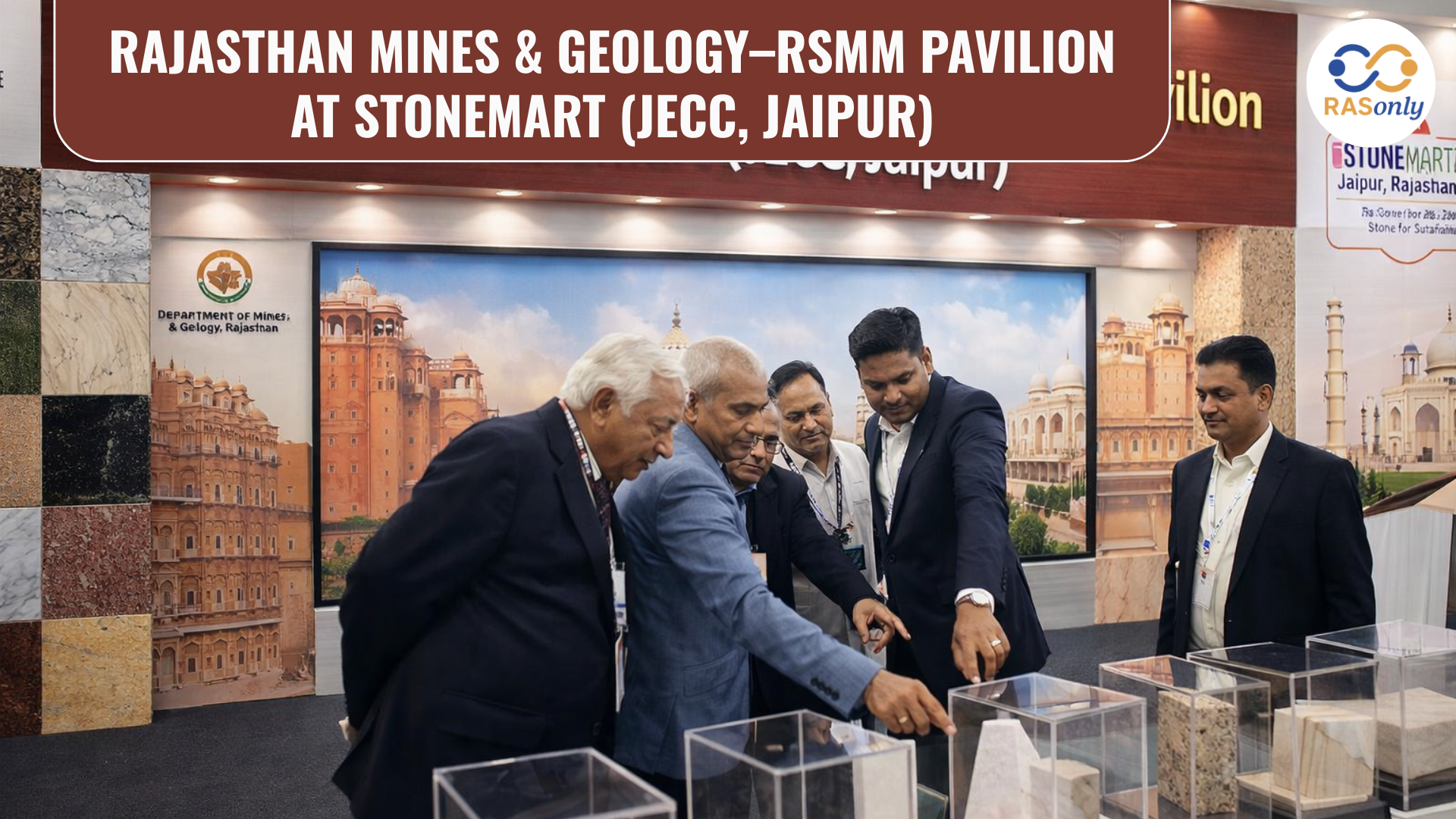
Rajasthan Pavilion Shines at Stone Mart Jaipur 2026
February 07, 2026
Rajasthan Achieves 3,000 MW Under PM-KUSUM Scheme
February 07, 2026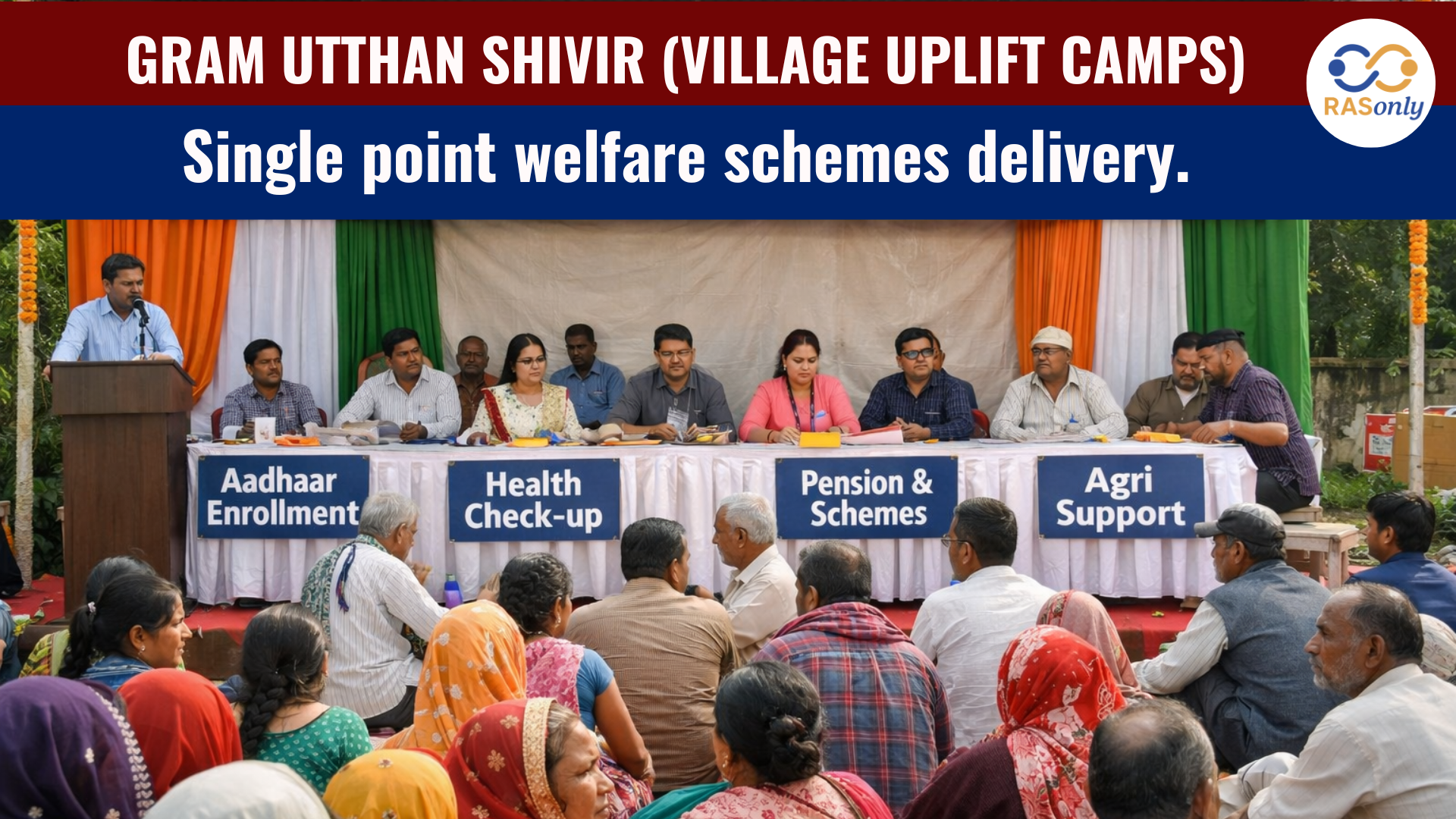
Gram Utthan Shivirs Strengthen Rural Governance in Rajasthan
February 07, 2026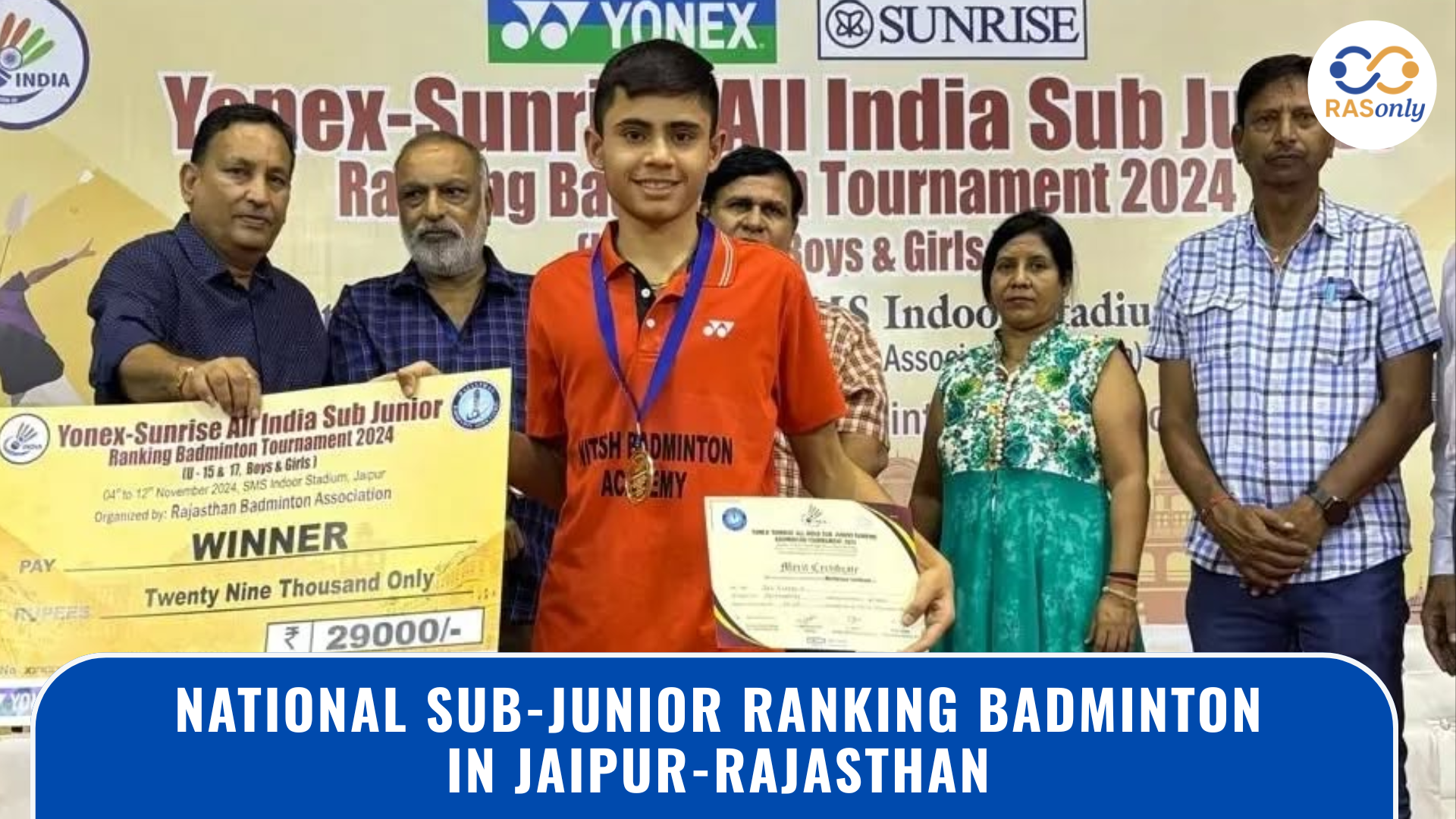
Jaipur Badminton: 72-Minute U-15 Final Creates Record
February 06, 2026👉🏻 Register Today to Join Classes! 👍🏻
- Team RASOnly -
🎯 Benefits of RASOnly Coaching:
- ✅ 1:1 Mentorship with RAS Officers
- ✅ Experienced and Expert Faculty
- ✅ Free Library Access
- ✅ Daily Minimum 4 Hours Must
- ✅ Comprehensive Study Material
- ✅ Regular Tests & Performance Analysis
- ✅ Personalized Guidance & Doubt Solving
- ✅ Online & Offline Class Options
- ✅ Affordable Fees with Quality Education
Key Highlights:
- 👉🏻 3-Day Refund Policy
- 👉🏻 New Batch Starting from 04 August
- 👉🏻 Registration Amount: Only ₹1000




